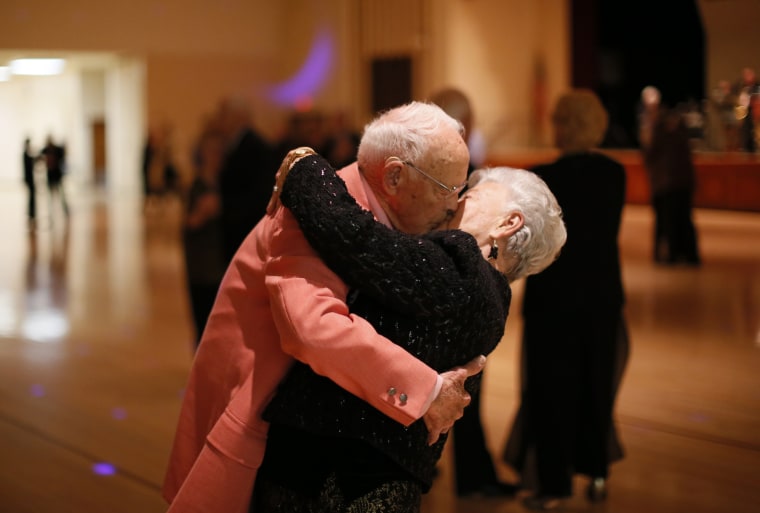Half of Americans over the age of 65 who are in a relationship are sexually active, according to a new poll. But not many of either half — the older Americans who are having sex and the ones who aren’t — are talking about it with their partners or their doctors.
That's a problem because many older adults take over-the-counter supplements that might interact with their prescription medications. Nearly 20 percent of men and 3 percent of women between ages 65 and 80 years old reported taking medications or supplements to improve sexual function in the past two years. Some of these supplements may be prescription medications, but others may be not be FDA approved.
“Non-prescription supplements can interact with other medications so providers should know about that,” said Erica Solway, co-associate director of the University of Michigan National Poll on Healthy Aging. "Sexually transmitted infections are also on the rise in older adults so routine questioning about sexual health is more important than ever."
The poll, conducted by the University of Michigan Institute for Healthcare Policy and Innovation, and sponsored by AARP and Michigan Medicine, explored how older adults, ages 65 to 80, might seek help or advice for sexual problems, and if they've talked with their doctors about their sexual health. One-thousand adults responded to the poll — the group was chosen to reflect the diverse populations that are surveyed by the U.S. Census Bureau.
Many doctors don't routinely ask older patients about their sexual health out of fear of offending them.
“Sixty percent of older adults report initiating these conversations… this leads us to believe that providers may not be addressing these issues in visits,” said Solway.
But the majority of those who spoke with their doctor — 88 percent — reported that they felt comfortable discussing their sexual health, regardless of who initiated the conversation, the poll said.
“My impression is that many seniors are eager to have sex, and to talk about it,” says New York City sex therapist Dr. Stephen Snyder, author of "Love Worth Making", who was not part of the study.
But does wanting to talk about sex translate to actual conversations? Solway and her colleagues who led the study don't seem to think so.
“We recognize that most people report that they would talk to a health care provider if they were to have a problem with their sexual health but only 17 percent reported that they’ve actually had these conversations in the past two years,” said Solway.
And only 36 percent of poll participants reported that they would talk to their spouse.
Whether or not older adults are sexually active, nearly two-thirds say they're interested in sex. More than half say sex is important to their quality of life.
“I'm thrilled that sex surveys are starting to include seniors. For many years, seniors were routinely eliminated from such studies,” said Snyder. “Sex in older adults is an important topic, even if it’s not widely talked about.”


